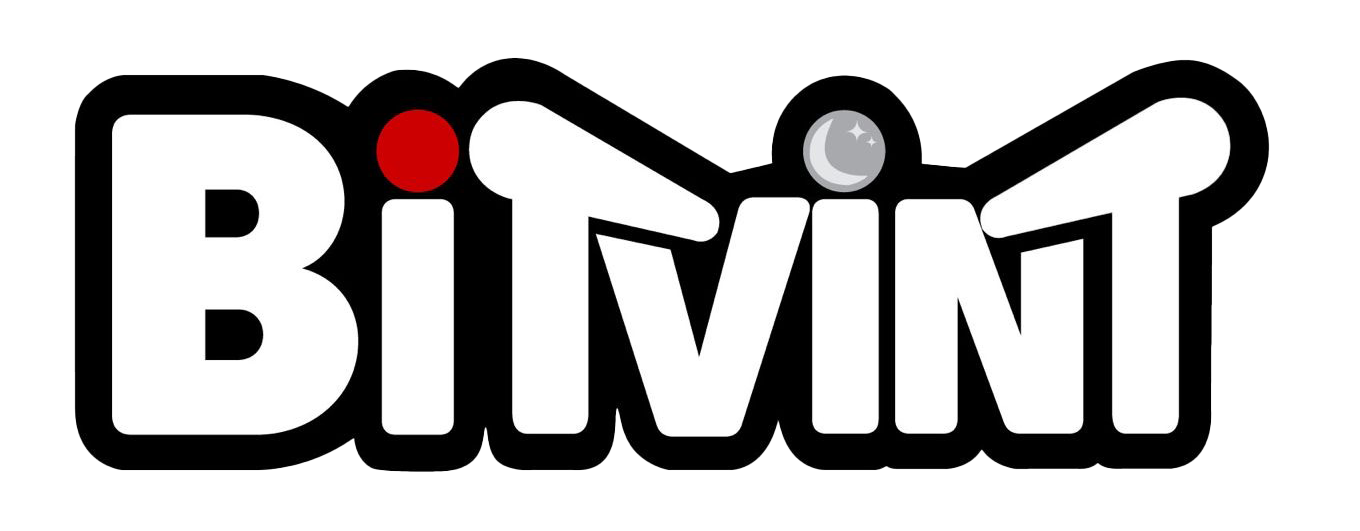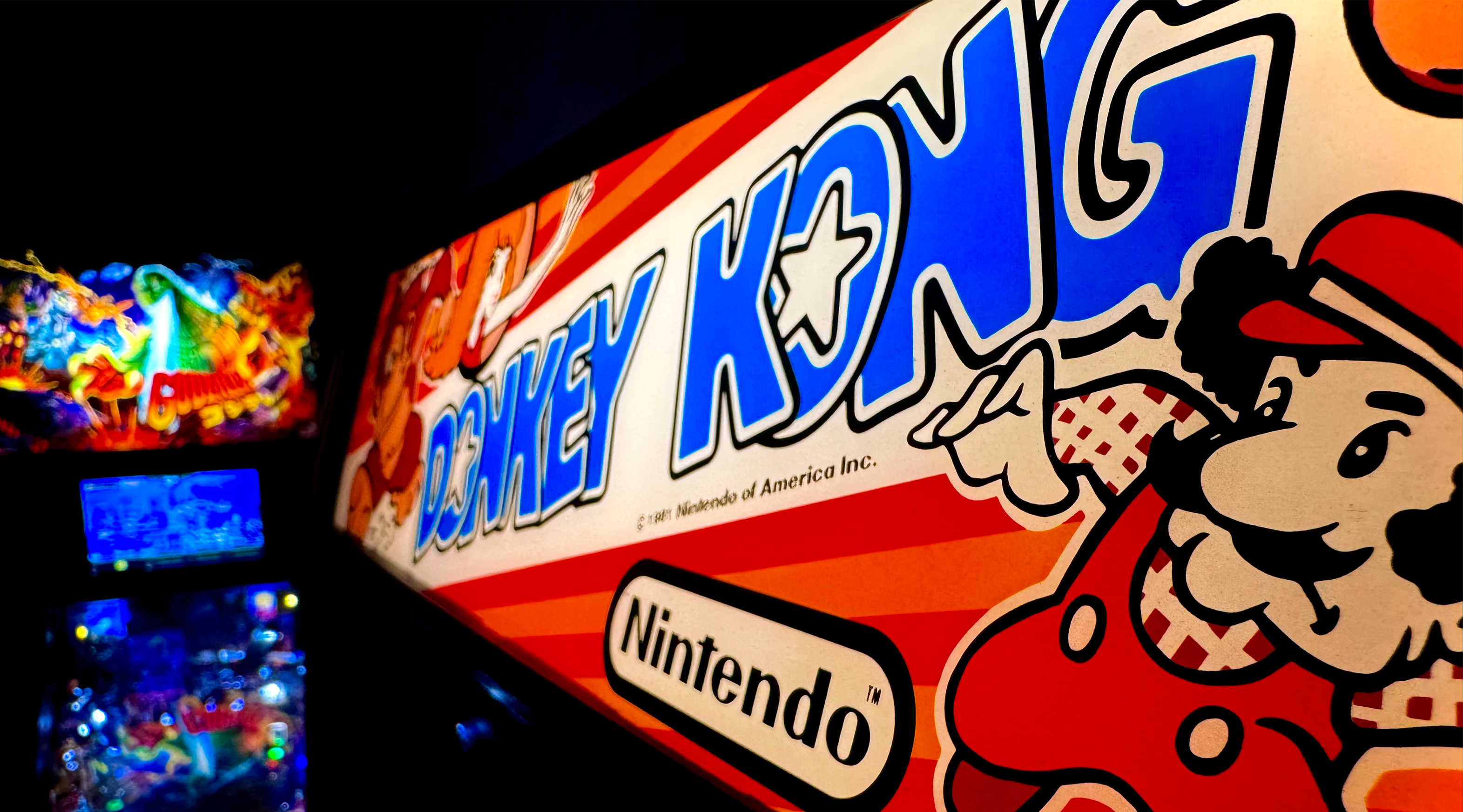Introduction
Donkey Kong is one of the most iconic and influential arcade games of all time. Released by Nintendo in 1981, it introduced the world to the character Mario (then known as Jumpman) and set the stage for the platformer genre. Created by Shigeru Miyamoto, Donkey Kong not only saved Nintendo’s fledgling video game division but also became a cultural phenomenon.
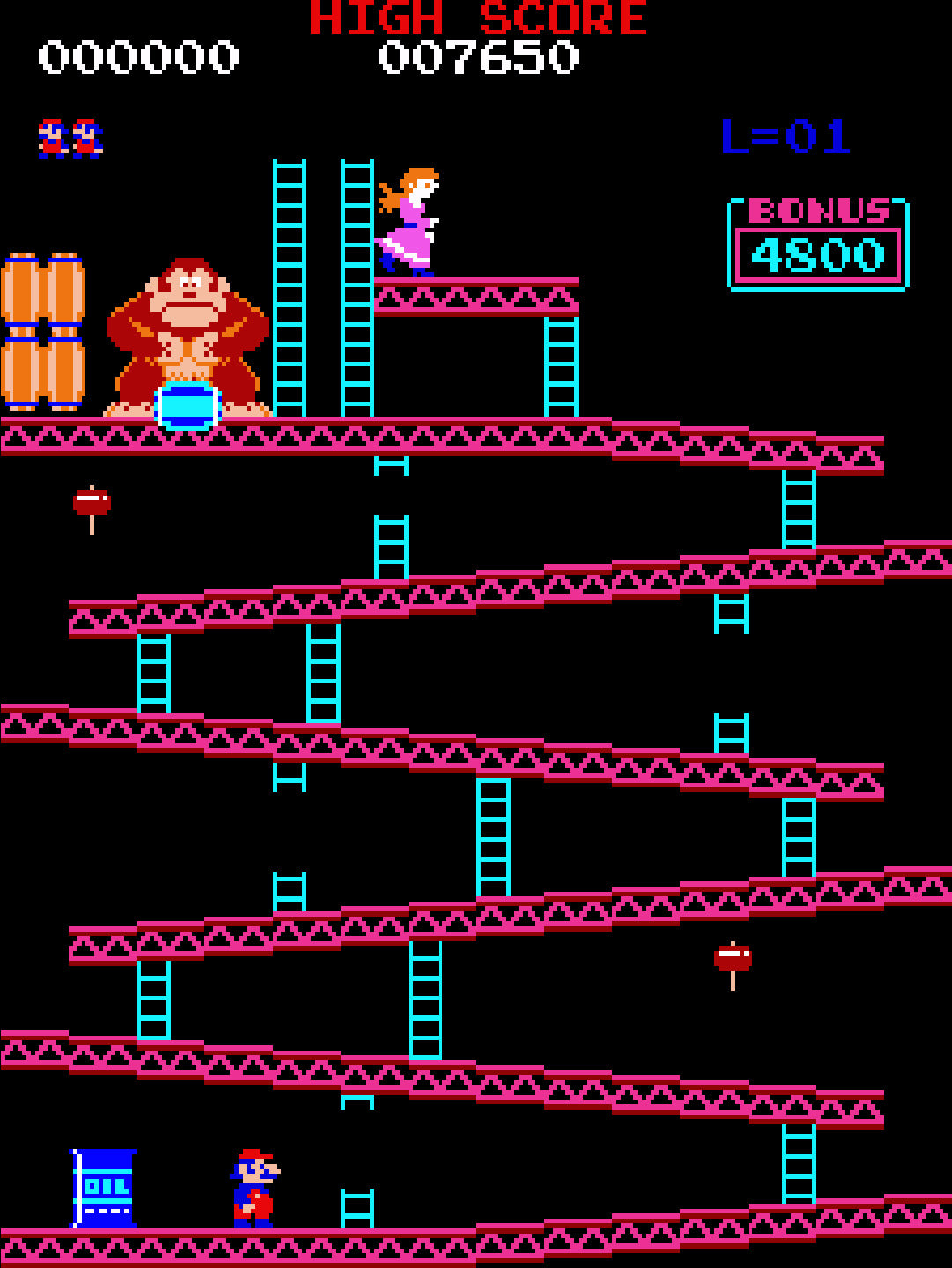
The History of Donkey Kong
In the late 1970s, Nintendo was searching for its breakout hit in the arcade market. Shigeru Miyamoto, a young game designer at the time, was tasked with repurposing unsold Radar Scope cabinets. The result was Donkey Kong, a game that exceeded all expectations and became a worldwide sensation.
Key Facts:
- Release Year: 1981
- Developer: Nintendo
- Designer: Shigeru Miyamoto
- Platform: Arcade cabinets, later ported to home consoles and PCs
Cultural Impact: Donkey Kong was one of the first games to feature a narrative, with players taking on the role of a hero (Jumpman) to rescue a damsel in distress (Pauline) from the titular antagonist, Donkey Kong. This storytelling element, combined with its engaging gameplay, revolutionized the arcade scene.
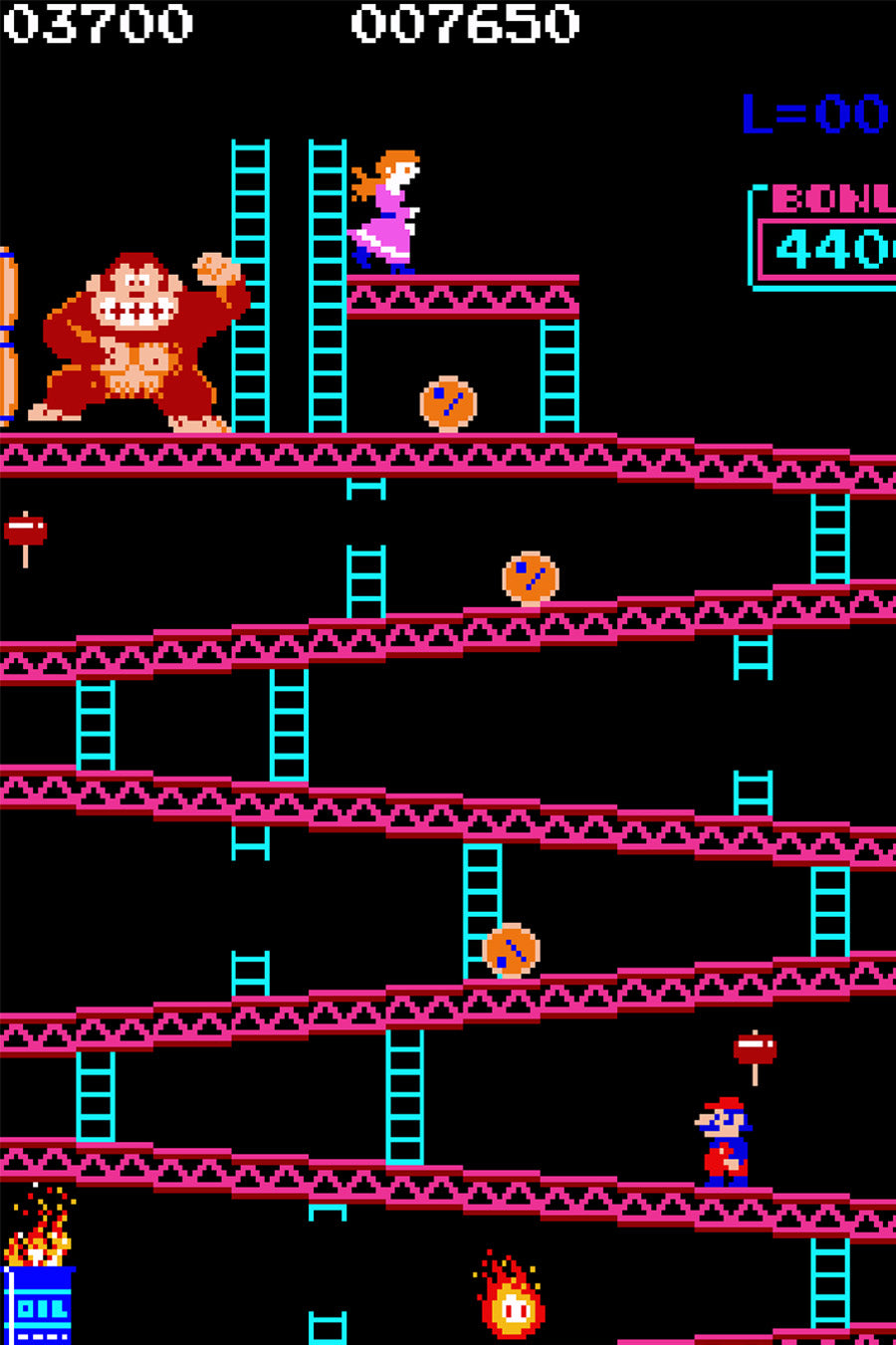
Donkey Kong Gameplay Video
Gameplay and Objectives
In Donkey Kong, players control Jumpman (later known as Mario) as he ascends a series of platforms to rescue Pauline from Donkey Kong. Each level presents unique challenges, increasing in difficulty as the game progresses.
Gameplay Features:
- Barrel Dodging: In the first level, Donkey Kong rolls barrels down ramps to impede Jumpman’s progress. Players must jump over or avoid the barrels to reach the top.
- Level Variety: Donkey Kong features four distinct levels:
- Enemies: Players face various obstacles, including barrels, fireballs, and bouncing springs.
- Point System: Points are awarded for jumping over barrels, smashing them with a hammer, and rescuing Pauline.
Tip for Players: Timing is everything. Observe the movement patterns of barrels and enemies to plan your ascent strategically.
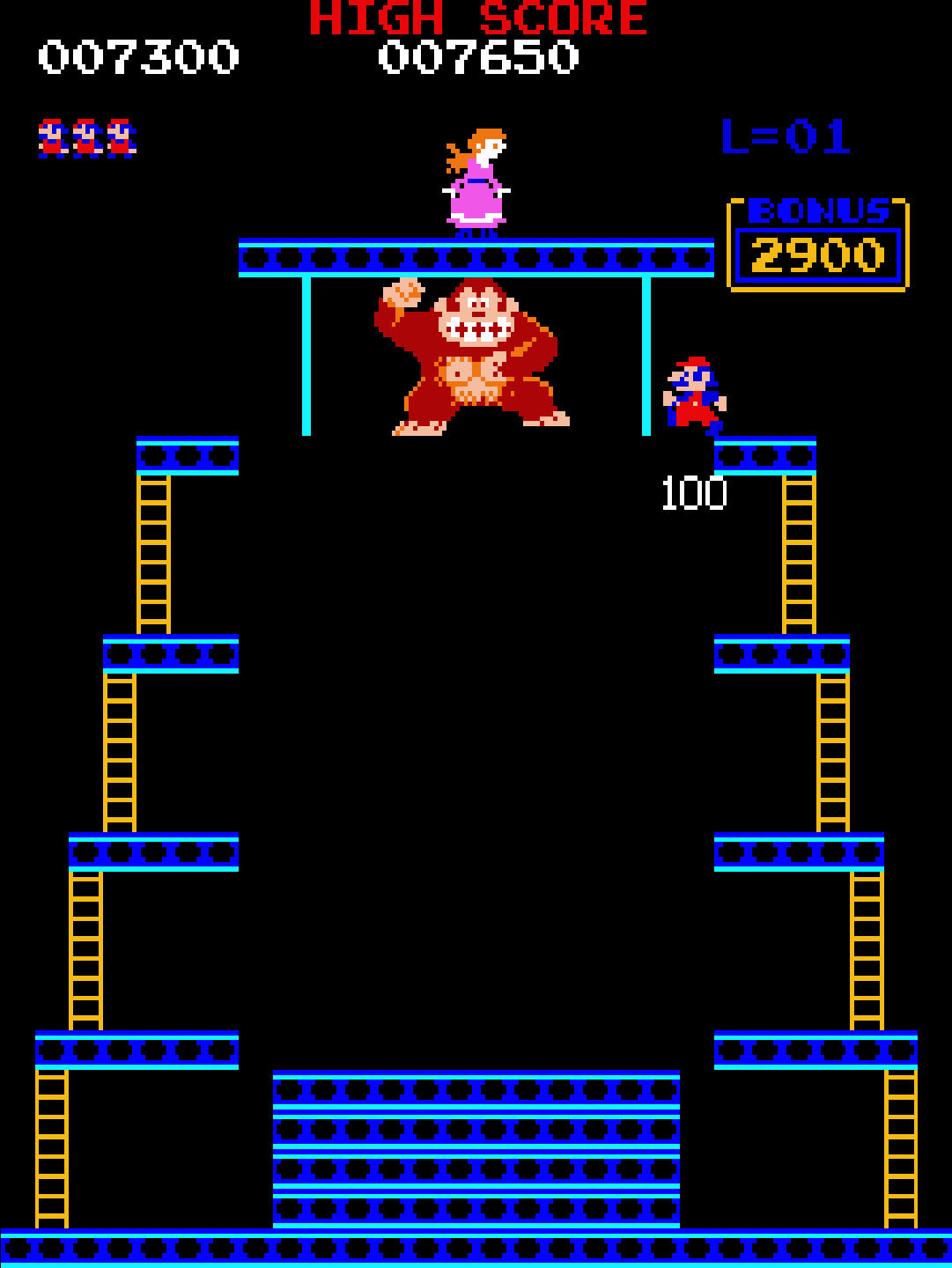
Levels and Gameplay
The gameplay unfolds across four unique levels, each presenting increasing difficulty and requiring players to master new mechanics.
Barrel Level
This is the first stage, where players must ascend platforms while dodging barrels thrown by Donkey Kong. Strategic use of ladders and precise jumps is key to advancing to higher levels.
Rivet Level
The second stage tasks players with removing rivets from platforms to collapse Donkey Kong’s structure and rescue Pauline. Avoiding fireballs and planning paths strategically is essential for victory.
Elevator Level
Introduced in later loops, this stage requires players to navigate platforms and lifts while avoiding enemies and falling hazards. Mastering timing and jumps is critical to success in this vertical challenge.
Pie Factory Level
Also known as the Cement Factory, this level appears in later loops and features moving conveyor belts and hazards like fireballs and pies. Players must carefully time movements to avoid obstacles and reach the top safely.
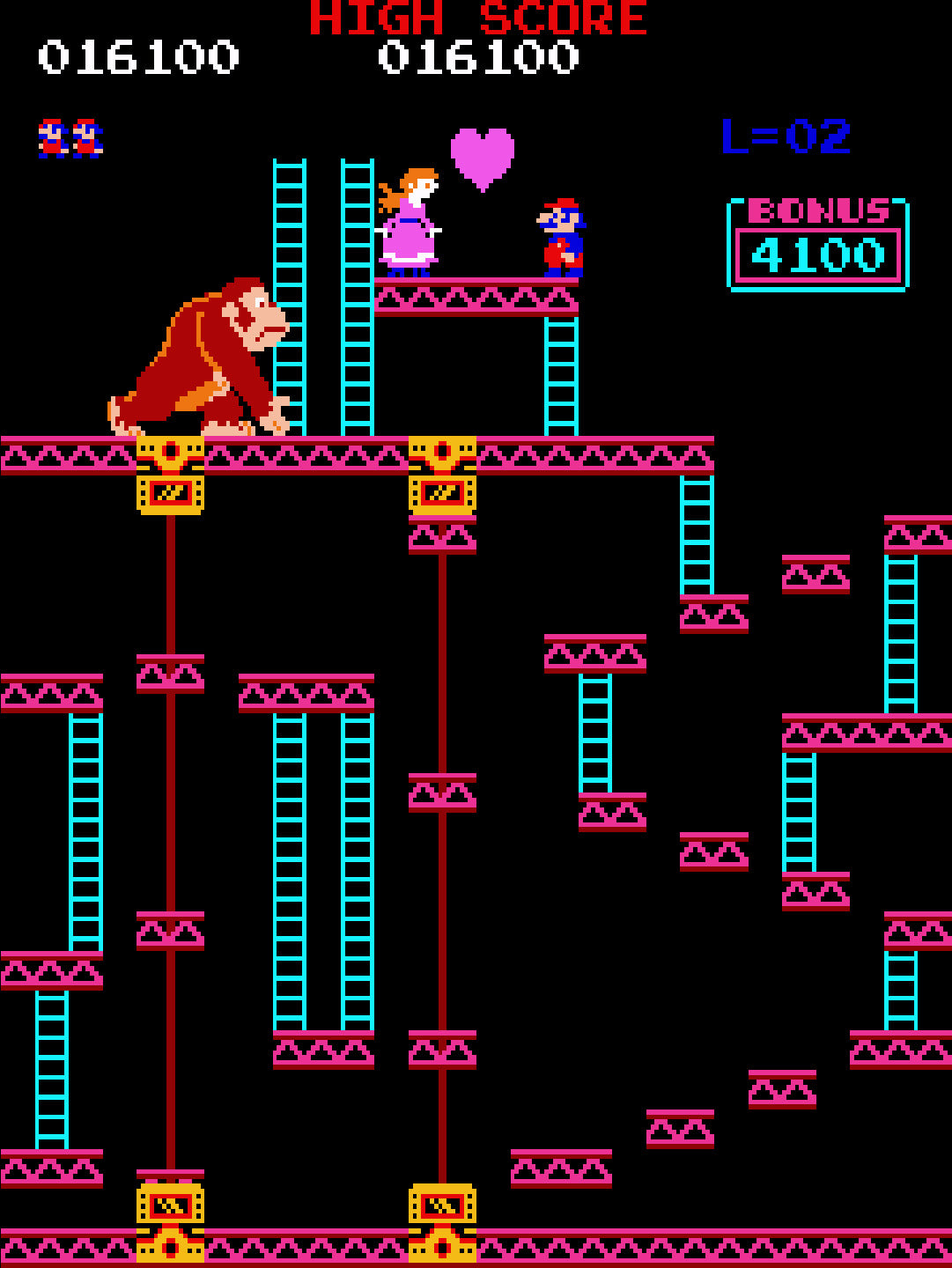
Unique Features and Innovations
Donkey Kong introduced several groundbreaking features that set it apart from other arcade games of its time:
Key Innovations:
- Story-Driven Gameplay: Donkey Kong was one of the first games to incorporate a narrative, adding context and stakes to the action.
- Character Development: The game introduced three iconic characters: Jumpman (Mario), Pauline, and Donkey Kong, all of whom became staples in Nintendo’s future franchises.
- Platformer Genre Pioneer: Its focus on vertical and horizontal movement laid the foundation for the platformer genre, influencing countless games to come.
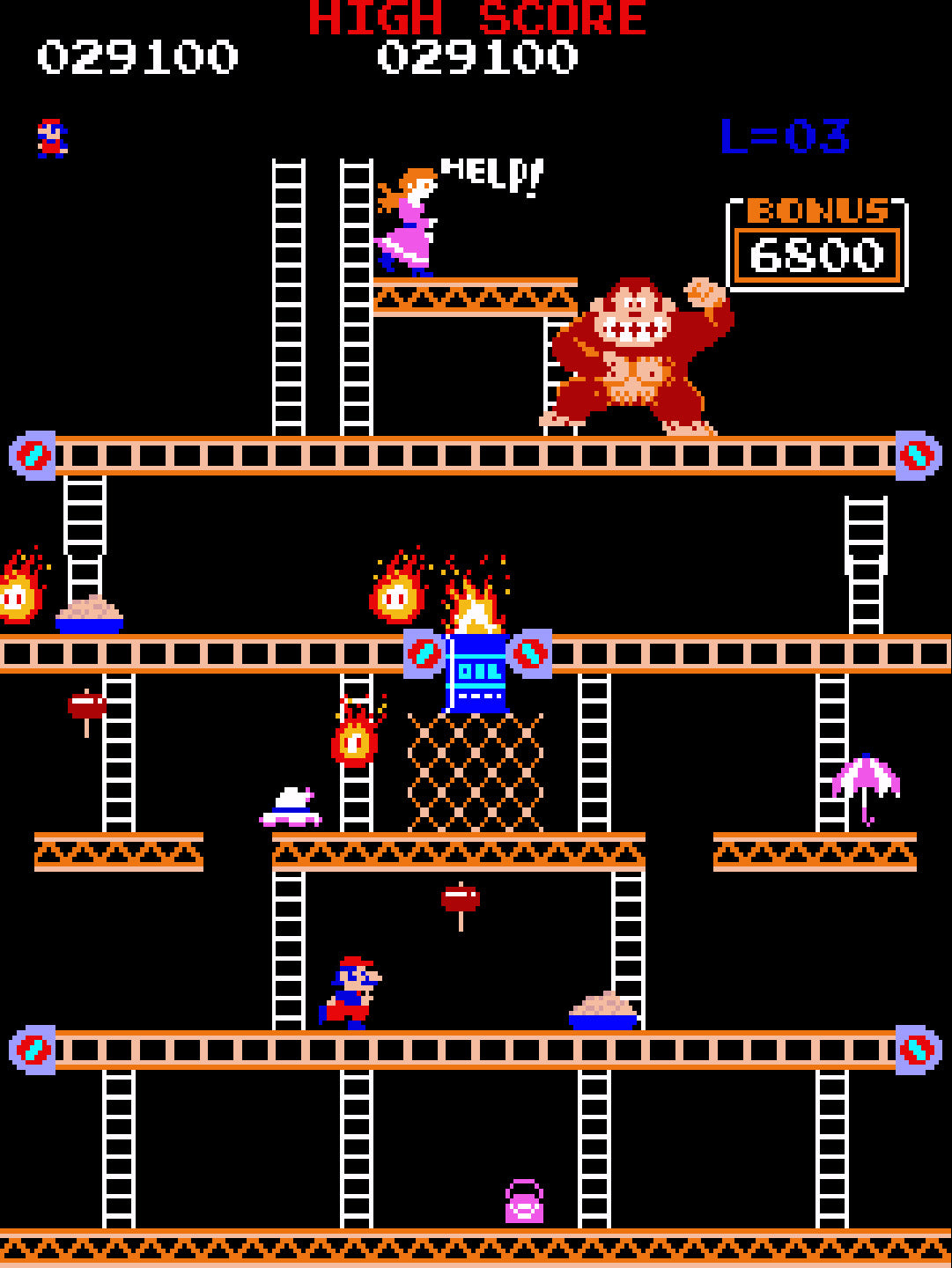
Strategies for High Scores
- Use the Hammer Strategically: While wielding the hammer, you’re invulnerable, but you can’t climb ladders. Use it only when surrounded by enemies.
- Plan Your Path: Look ahead to choose the safest and most efficient route to the top.
- Collect Bonus Items: Grab Pauline’s dropped items (e.g., hat, purse, umbrella) for extra points.
Fun Facts
- Mario’s Original Name: Jumpman was renamed Mario after Mario Segale, the landlord of Nintendo’s American warehouse.
- Guinness World Record: The highest Donkey Kong score, achieved by Robbie Lakeman in 2023, stands at an astonishing 1,276,700 points (see video below for some of his gameplay).
- Easter Eggs: Some Donkey Kong cabinets feature hidden initials of the development team, a rarity for games of its era.
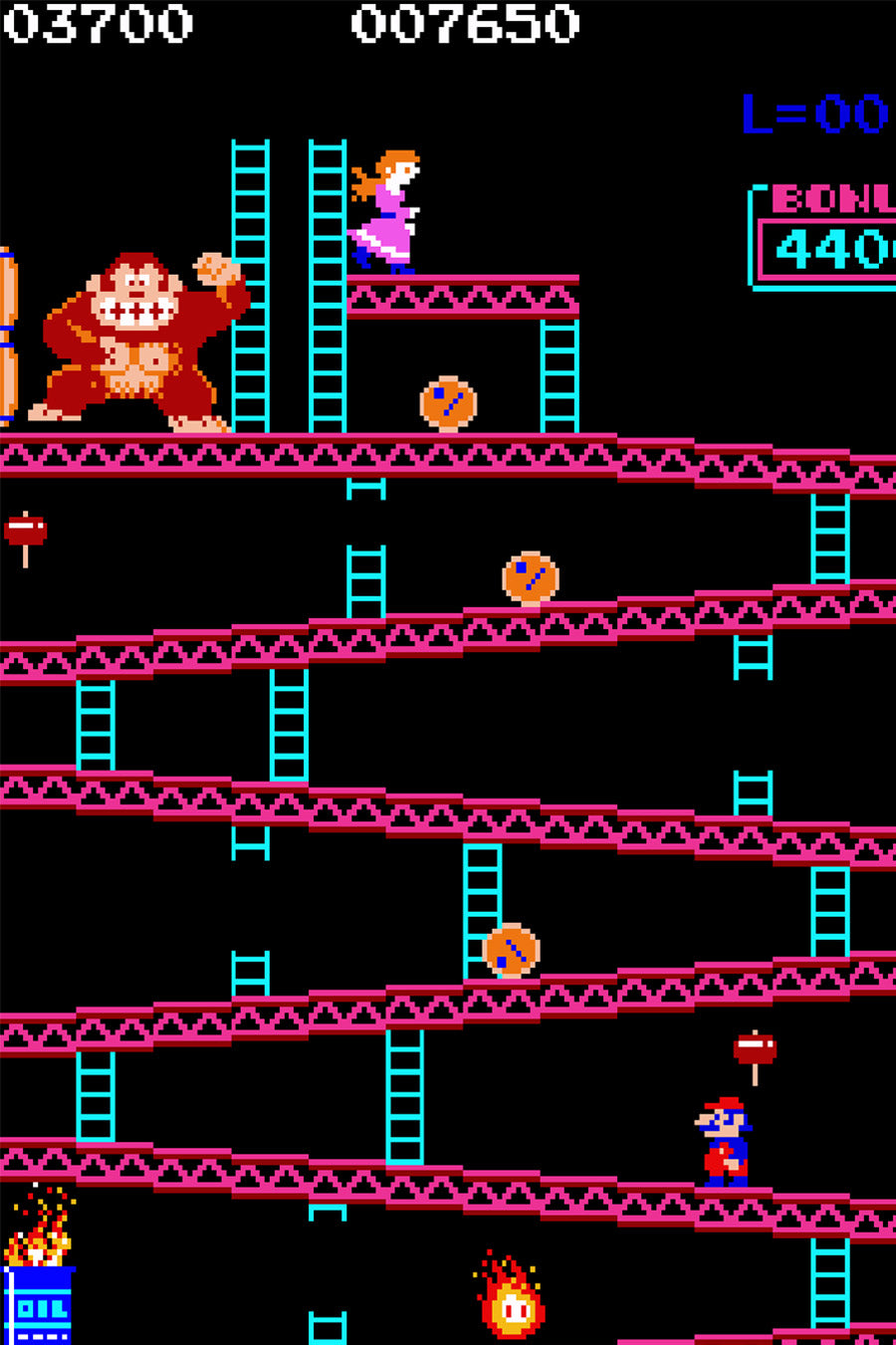
World Record Holder plays Donkey Kong Video
Conclusion
Donkey Kong is more than just a game—it’s a piece of gaming history that has inspired generations of players and developers. Its innovative gameplay, memorable characters, and cultural impact make it a must-play for anyone interested in the origins of video gaming. Whether you’re chasing high scores or simply enjoying a piece of nostalgia, Donkey Kong remains an arcade classic worth revisiting.
Explore More
Love arcade classics? Check out our guides on Pac-Man, Galaga, and Defender to discover more legends from the golden age of gaming.
Questions you might have:
What are the different levels in "Donkey Kong," and how do they progress in difficulty?
The levels are "Construction Site," "Pie Factory," "Elevator," and "Rivets." Each level introduces new challenges, enemies, and gameplay mechanics, increasing in difficulty.
How did the character of Jumpman in "Donkey Kong" evolve into Mario?
The character Jumpman later evolved into the iconic character Mario. This transition occurred in subsequent games, where Jumpman's character design and persona were refined into Mario.
What is the legacy of "Donkey Kong," and how does it fit into Nintendo's history?
"Donkey Kong" holds a prominent place in gaming history as one of the earliest platformers and the game that introduced Mario, ultimately contributing to Nintendo's success and shaping the future of video games. Learn more here.
Were there any sequels or adaptations of "Donkey Kong" for other platforms?
"Donkey Kong" inspired numerous sequels and adaptations across different platforms, including "Donkey Kong Jr." and "Donkey Kong Country."
What is the objective and gameplay of "Donkey Kong"?
The objective is to guide Jumpman (Mario) through four different stages to rescue Pauline from Donkey Kong. Players must climb platforms, avoid obstacles, and confront Donkey Kong's attacks.
Who are the main characters in "Donkey Kong," and what are their roles in the game?
The main characters are Jumpman (later known as Mario), Donkey Kong, and Pauline. Jumpman tries to rescue Pauline from Donkey Kong's clutches.
